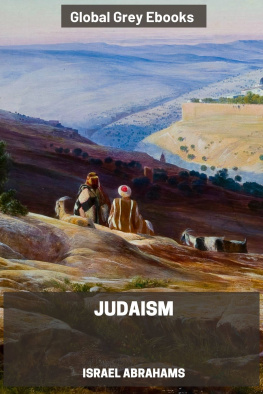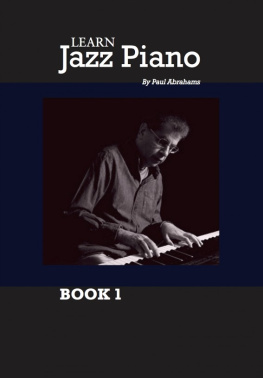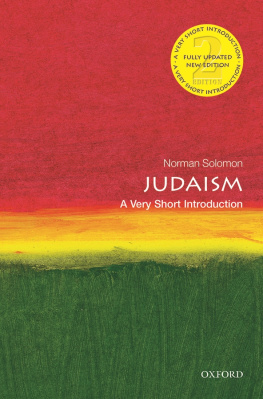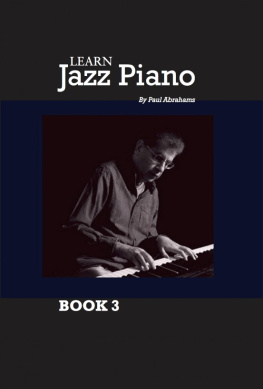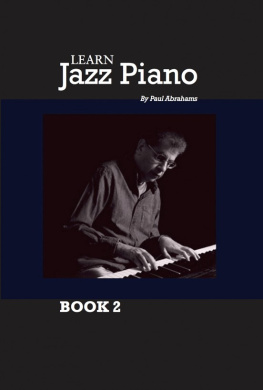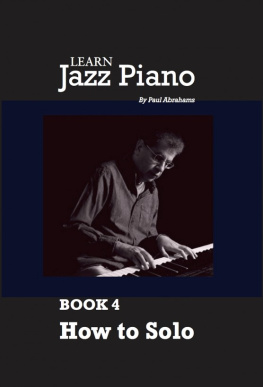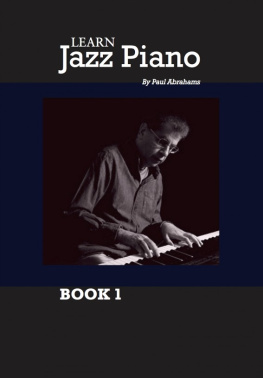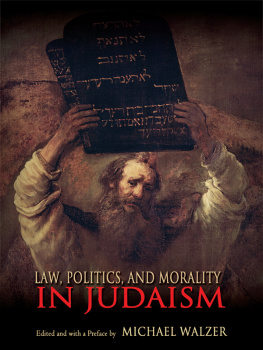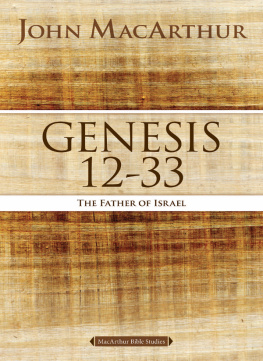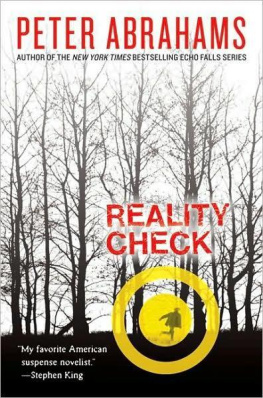Israel Abrahams - Judaism
Here you can read online Israel Abrahams - Judaism full text of the book (entire story) in english for free. Download pdf and epub, get meaning, cover and reviews about this ebook. year: 2021, publisher: Global Grey, genre: Religion. Description of the work, (preface) as well as reviews are available. Best literature library LitArk.com created for fans of good reading and offers a wide selection of genres:
Romance novel
Science fiction
Adventure
Detective
Science
History
Home and family
Prose
Art
Politics
Computer
Non-fiction
Religion
Business
Children
Humor
Choose a favorite category and find really read worthwhile books. Enjoy immersion in the world of imagination, feel the emotions of the characters or learn something new for yourself, make an fascinating discovery.
- Book:Judaism
- Author:
- Publisher:Global Grey
- Genre:
- Year:2021
- Rating:3 / 5
- Favourites:Add to favourites
- Your mark:
- 60
- 1
- 2
- 3
- 4
- 5
Judaism: summary, description and annotation
We offer to read an annotation, description, summary or preface (depends on what the author of the book "Judaism" wrote himself). If you haven't found the necessary information about the book — write in the comments, we will try to find it.
Judaism — read online for free the complete book (whole text) full work
Below is the text of the book, divided by pages. System saving the place of the last page read, allows you to conveniently read the book "Judaism" online for free, without having to search again every time where you left off. Put a bookmark, and you can go to the page where you finished reading at any time.
Font size:
Interval:
Bookmark:

Judaism
by Israel Abrahams
First published in 1921
This ebook edition was created and published by Global Grey
The artwork for the cover is Jerusalem from the Mount of Olives
painted by Edward Lear.
You can download this book on the site:
globalgreyebooks.com/judaism-abrahams-ebook.html

GlobalGrey 2021
globalgreyebooks.com
The writer has attempted in this volume to take up a few of the most characteristic points in Jewish doctrine and practice, and to explain some of the various phases through which they have passed, since the first centuries of the Christian era.
The presentation is probably much less detached than is the case with other volumes in this series. But the difference was scarcely avoidable. The writer was not expounding a religious system which has no relation to his own life. On the contrary, the writer is himself a Jew, and thus is deeply concerned personally in the matters discussed in the book.
The reader must be warned to keep this fact in mind throughout. On the one hand, the book must suffer a loss of objectivity; but, on the other hand, there may be some compensating gain of intensity. The author trusts, at all events, that, though he has not written with indifference, he has escaped the pitfall of undue partiality.
I. A.
The aim of this little book is to present in brief outline some of the leading conceptions of the religion familiar since the Christian Era under the name Judaism.
The word 'Judaism' occurs for the first time at about 100 B.C., in the Graeco-Jewish literature. In the second book of the Maccabees (ii. 21, viii. 1), 'Judaism' signifies the religion of the Jews as contrasted with Hellenism, the religion of the Greeks. In the New Testament (Gal. i. 13) the same word seems to denote the Pharisaic system as an antithesis to the Gentile Christianity. In Hebrew the corresponding noun never occurs in the Bible, and it is rare even in the Rabbinic books. When it does meet us, Jahaduth implies the monotheism of the Jews as opposed to the polytheism of the heathen.
Thus the term 'Judaism' did not pass through quite the same transitions as did the name 'Jew.' Judaism appears from the first as a religion transcending tribal bounds. The 'Jew,' on the other hand, was originally a Judaean, a member of the Southern Confederacy called in the Bible Judah, and by the Greeks and Romans Judaea. Soon, however, 'Jew' came to include what had earlier been the Northern Confederacy of Israel as well, so that in the post-exilic period Jehudi or 'Jew' means an adherent of Judaism without regard to local nationality.
Judaism, then, is here taken to represent that later development of the Religion of Israel which began with the reorganisation after the Babylonian Exile (444 B.C.), and was crystallised by the Roman Exile (during the first centuries of the Christian Era). The exact period which will be here seized as a starting-point is the moment when the people of Israel were losing, never so far to regain, their territorial association with Palestine, and were becoming (what they have ever since been) a community as distinct from a nation. They remained, it is true, a distinct race, and this is still in a sense true. Yet at various periods a number of proselytes have been admitted, and in other ways the purity of the race has been affected. At all events territorial nationality ceased from a date which may be roughly fixed at 135 A.D., when the last desperate revolt under Bar-Cochba failed, and Hadrian drew his Roman plough over the city of Jerusalem and the Temple area. A new city with a new name arose on the ruins. The ruins afterwards reasserted themselves, and Aelia Capitolina as a designation of Jerusalem is familiar only to archaeologists.
But though the name of Hadrian's new city has faded, the effect of its foundation remained. Aelia Capitolina, with its market-places and theatre, replaced the olden narrow-streeted town; a House of Venus reared its stately form in the north, and a Sanctuary to Jupiter covered, in the east, the site of the former Temple. Heathen colonists were introduced, and the Jew, who was to become in future centuries an alien everywhere, was made by Hadrian an alien in his fatherland. For the Roman Emperor denied to Jews the right of entry into Jerusalem. Thus Hadrian completed the work of Titus, and Judaism was divorced from its local habitation. More unreservedly than during the Babylonian Exile, Judaism in the Roman Exile perforce became the religion of a community and not of a state; and Israel for the first time constituted a Church. But it was a Church with no visible home. Christianity for several centuries was to have a centre at Rome, Islam at Mecca. But Judaism had and has no centre at all.
It will be obvious that the aim of the present book makes it both superfluous and inappropriate to discuss the vexed problems connected with the origins of the Religion of Israel, its aspects in primitive times, its passage through a national to an ethical monotheism, its expansion into the universalism of the second Isaiah. What concerns us here is merely the legacy which the Religion of Israel bequeathed to Judaism as we have defined it. This legacy and the manner in which it was treasured, enlarged, and administered will occupy us in the rest of this book.
But this much must be premised. If the Religion of Israel passed through the stages of totemism, animism, and polydemonism; if it was indebted to Canaanite, Kenite, Babylonian, Persian, Greek, and other foreign influences; if it experienced a stage of monolatry or henotheism (in which Israel recognised one God, but did not think of that God as the only God of all men) before ethical monotheism of the universalistic type was reached; if, further, all these stages and the moral and religious ideas connected with each left a more or less clear mark in the sacred literature of Israel; then the legacy which Judaism received from its past was a syncretism of the whole of the religious experiences of Israel as interpreted in the light of Israel's latest, highest, most approved standards. Like the Bourbon, the Jew forgets nothing; but unlike the Bourbon, the Jew is always learning. The domestic stories of the Patriarchs were not rejected as unprofitable when Israel became deeply impregnated with the monogamous teachings of writers like the author of the last chapter of Proverbs; the character of David was idealised by the spiritual associations of the Psalter, parts of which tradition ascribed to him; the earthly life was etherialised and much of the sacred literature reinterpreted in the light of an added belief in immortality; God, in the early literature a tribal non-moral deity, was in the later literature a righteous ruler who with Amos and Hosea loved and demanded righteousness in man. Judaism took over as one indivisible body of sacred teachings both the early and the later literature in which these varying conceptions of God were enshrined; the Law was accepted as the guiding rule of life, the ritual of ceremony and sacrifice was treasured as a holy memory, and as a memory not contradictory of the prophetic exaltation of inward religion but as consistent with that exaltation, as interpreting it, as but another aspect of Micah's enunciation of the demands of God: 'What doth the Lord require of thee but to do justly, to love mercy, and to walk humbly with thy God?'
Next pageFont size:
Interval:
Bookmark:
Similar books «Judaism»
Look at similar books to Judaism. We have selected literature similar in name and meaning in the hope of providing readers with more options to find new, interesting, not yet read works.
Discussion, reviews of the book Judaism and just readers' own opinions. Leave your comments, write what you think about the work, its meaning or the main characters. Specify what exactly you liked and what you didn't like, and why you think so.

